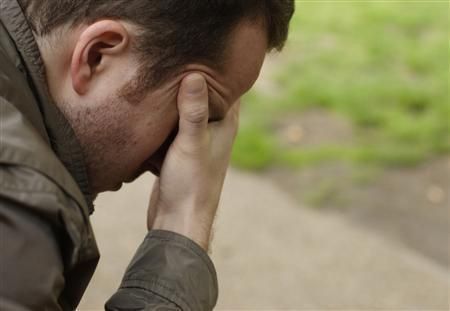Concussion May Cause Symptoms Of Depression Down The Road Due To Brain's Inflammatory Response

To understand a concussion’s full effect on the brain, it is necessary to determine immediate consequences in addition to complications that could manifest a couple of years down the line. For example, a recent study published in the journal Biological Psychiatry revealed that a traumatic brain injury can lead to symptoms of depression through a delayed immune system response caused by brain cells on “high alert.”
"A lot of people with a history of head injury don't develop mental-health problems until they're in their 40s, 50s or 60s,” said lead author Jonathan Godbout, associate professor of neuroscience at Ohio State University and a researcher in the Institute for Behavioral Medicine Research. “That suggests there are other factors involved, and that's why we're looking at this two-hit idea — the brain injury being the first and then an immune challenge. It's as if one plus one plus one equals 15. There can be a multiplier effect."
According to the Centers for Disease Control and Prevention (CDC), around 1.7 million traumatic brain injuries are reported each year. Traumatic brain injuries contribute to 30 percent of all injury-related deaths in the U.S. Seventy-five percent of these injuries are thought to be a concussion. Both mild and severe traumatic brain injuries can cause short or long-term health complications in Thinking, Sensation, Language and Emotion.
Prof. Godbout and his colleagues examined these “high alert” brain cells, commonly known as microglia, in mice. Microglia are on high alert as a result of excessive inflammation that the brain experiences following a traumatic brain injury. Researchers isolated concussive brain injuries that were considered less severe, meaning the individual showed no complications a week after sustaining a concussion.
When compared against mice that had not suffered from a traumatic brain injury, injured mice experienced symptoms of depression a week into the study as well as 30 days later. After taking a closer look at the injured mice’s brain thirty days after it suffered the traumatic brain injury, researchers found that microglia were still on high alert due to neuroinflammation.
"If we had waited three, six or nine months, the symptoms probably would have gotten even worse," Prof. Godbout added. "The young adult mice that have a diffuse head injury basically recover to normal, but not everything is normal. The brain still has a more inflammatory makeup that is permissive to hyperactivation of an immune response. These results tell us the TBI mice are having an amplified and prolonged activation of microglia, and that was associated with development of depressive symptoms in the mice.”
Microglia are tasked with protecting the brain following a traumatic brain injury by producing proteins and other chemicals to fight an infection. If these cells are on high alert, a surplus of proteins and chemicals cause an inflammatory response in the brain. Thirty days into the study, mice affected by a traumatic brain injury were given lipopolysaccharide (LPS), a substance that initiates an immune response in animals. Three days after the LPS injection, injured mice continued to experience depressive symptoms including a loss of appetite, inability to connect with other mice, and showed signs of “giving up.”



























